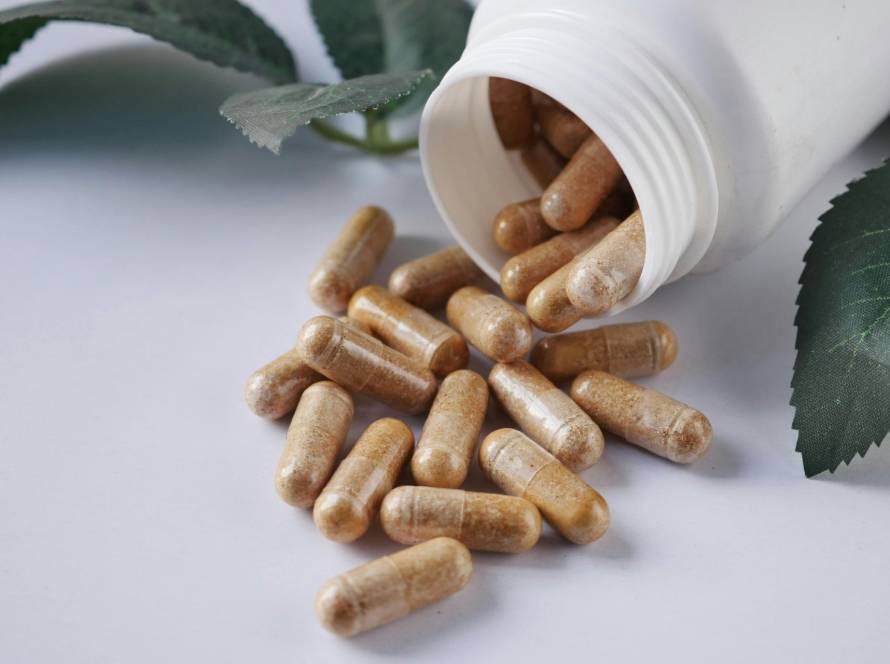Beta alanine is a non-essential amino acid that has gained widespread attention in sports nutrition and human performance research. Known for its role in enhancing physical endurance and reducing muscle fatigue, beta alanine is also being studied for its broader health effects, including cognitive protection and antioxidant defense.
This article explores what beta alanine is used for, who may benefit from it and how it supports energy metabolism, physical function and aging. Backed by scientific studies, we break down the practical uses and physiological mechanisms that make it one of the most effective performance-enhancing supplements available today.
Enhancing muscular endurance
How beta alanine increases carnosine levels
When we perform high-intensity exercise, hydrogen ions accumulate in muscles and lower pH, causing fatigue and performance decline. Carnosine acts as a buffer to neutralize these hydrogen ions. However, the rate-limiting factor in carnosine synthesis is beta alanine, not histidine.
Supplementation with beta alanine has been shown to increase intramuscular carnosine concentrations by up to 80% over 4 to 10 weeks, significantly enhancing muscle buffering capacity, according to studies.
Evidence from endurance training
A randomized controlled trial found that cyclists who supplemented with 6.4 grams of beta alanine daily for four weeks improved their time to exhaustion by over 13%. Similar results have been replicated across various endurance disciplines, including rowing, sprinting and military training exercises.
Reducing muscle fatigue
Delaying lactate accumulation
As we exercise intensely, lactate and hydrogen ions build up in the muscles, contributing to the burning sensation and early fatigue. Beta alanine, via carnosine, helps delay this process by stabilizing pH within muscle cells.
Practical implications for athletes
Athletes engaged in high-intensity interval training (HIIT), CrossFit, combat sports and team-based anaerobic activities are among the primary beneficiaries of beta alanine supplementation. According to a review, beta alanine supplementation consistently improved performance in events lasting between 60 and 240 seconds, precisely where lactic acid buildup becomes limiting.
Improving strength and power output
Effects on short-term performance
While it is primarily associated with muscular endurance, some studies suggest it may also support improvements in strength and explosive power. This is particularly relevant when the supplement is used in conjunction with other performance enhancers like creatine.
Studies show that athletes who took both beta alanine and creatine showed greater gains in lean muscle mass and strength compared to those who took creatine alone.
Synergy with resistance training
In resistance-trained individuals, beta alanine may help extend the number of repetitions completed during strength sets, particularly in the 8–15 rep range where muscle acidosis is a limiting factor, according to studies. Over time, this can translate into improved volume, greater muscle hypertrophy and better strength development.
Supporting brain and cognitive health
Role in the central nervous system
Carnosine is not limited to muscle tissue, it is also present in the brain and may play a neuroprotective role. Beta alanine supplementation could enhance brain carnosine levels, although more research is needed to confirm this effect in humans.
Studies show that carnosine protect neurons against oxidative damage, chelate metal ions and inhibit glycation, all of which are processes implicated in neurodegeneration, like Alzheimer’s.
Emerging research
Animal studies suggest that beta alanine may improve learning, reduce stress-related behavior and protect against age-related cognitive decline. For example, a 2021 study found that it improved spatial memory and antioxidant status in aging rats. While these findings are promising, human trials on cognitive performance and mental health outcomes are still limited and ongoing.
Promoting healthy aging
Antioxidant effects of carnosine
As we age, oxidative stress and cellular damage accumulate, contributing to chronic inflammation and degenerative conditions. Carnosine, the molecule enhanced by beta alanine, exhibits antioxidant, anti-glycation and metal-chelating properties. These mechanisms help protect cells from damage and maintain their function over time.
Studies show that carnosine could extend cellular lifespan in vitro and reduce protein carbonylation, a marker of oxidative damage. By boosting carnosine levels, beta alanine may offer a nutritional strategy to support longevity and resilience to age-related diseases.
Potential longevity applications
Although most human research on beta alanine focuses on exercise performance, some scientists are exploring its potential role in extending healthspan. The anti-aging effects observed in animal models, including reduced inflammation, better mitochondrial function and enhanced stress resistance, warrant further investigation.
In combination with regular physical activity and a balanced diet, it may be a useful tool for maintaining energy, muscle mass and cognitive function as we grow older.
Common usage, dosage and safety
Recommended dosage
The most effective dosing strategy for beta alanine is a daily intake of 3 to 6.4 grams, usually divided into smaller doses throughout the day to minimize tingling (paresthesia), according to research. This mild side effect is harmless and typically diminishes over time or with lower single doses.
Studies show that consistent supplementation for at least four weeks is needed to see measurable increases in muscle carnosine.
Who may benefit most
Beta alanine is particularly effective for athletes engaged in high-intensity efforts, but it may also help older adults, individuals with muscle-wasting conditions and those pursuing healthy aging strategies. People on plant-based diets, which are typically lower in beta alanine-containing foods, might also benefit.
Safety profile
Beta alanine has been widely studied and is considered safe for long-term use. A review concluded that supplementation up to 6.4 grams per day for 24 weeks did not result in any adverse health effects. However, those with underlying health conditions should consult a healthcare provider before starting any new supplement.
Beta alanine is a well-researched amino acid with proven benefits for muscular endurance, fatigue resistance and overall performance, especially during high-intensity exercise. By increasing muscle carnosine levels, it helps buffer acidity and sustain physical effort, making it a valuable supplement for athletes and fitness enthusiasts alike.
But its potential extends beyond sports. From supporting cognitive health and protecting against oxidative stress to enhancing longevity mechanisms, it may offer a broader impact on health and aging than once thought.


